Related Research Articles
The John von Neumann Theory Prize of the Institute for Operations Research and the Management Sciences (INFORMS) is awarded annually to an individual who has made fundamental and sustained contributions to theory in operations research and the management sciences.

Linear programming (LP), also called linear optimization, is a method to achieve the best outcome in a mathematical model whose requirements and objective are represented by linear relationships. Linear programming is a special case of mathematical programming.

In mathematical optimization, the cutting-plane method is any of a variety of optimization methods that iteratively refine a feasible set or objective function by means of linear inequalities, termed cuts. Such procedures are commonly used to find integer solutions to mixed integer linear programming (MILP) problems, as well as to solve general, not necessarily differentiable convex optimization problems. The use of cutting planes to solve MILP was introduced by Ralph E. Gomory.

Jack R. Edmonds is an American-born and educated computer scientist and mathematician who lived and worked in Canada for much of his life. He has made fundamental contributions to the fields of combinatorial optimization, polyhedral combinatorics, discrete mathematics and the theory of computing. He was the recipient of the 1985 John von Neumann Theory Prize.
Ralph Edward Gomory is an American applied mathematician and executive. Gomory worked at IBM as a researcher and later as an executive. During that time, his research led to the creation of new areas of applied mathematics.
The Mathematical Optimization Society (MOS), known as the Mathematical Programming Society (MPS) until 2010, is an international association of researchers active in optimization. The MOS encourages the research, development, and use of optimization—including mathematical theory, software implementation, and practical applications.

In mathematics, the relaxation of a (mixed) integer linear program is the problem that arises by removing the integrality constraint of each variable.
Alan Jerome Hoffman was an American mathematician and IBM Fellow emeritus, T. J. Watson Research Center, IBM, in Yorktown Heights, New York. He was the founding editor of the journal Linear Algebra and its Applications, and held several patents. He contributed to combinatorial optimization and the eigenvalue theory of graphs. Hoffman and Robert Singleton constructed the Hoffman–Singleton graph, which is the unique Moore graph of degree 7 and diameter 2.

Fred Glover is Chief Scientific Officer of Entanglement, Inc., USA, in charge of algorithmic design and strategic planning for applications of combinatorial optimization in quantum computing. He also holds the title of Distinguished University Professor, Emeritus, at the University of Colorado, Boulder, associated with the College of Engineering and Applied Science and the Leeds School of Business. He is known for his innovations in the area of metaheuristics including the computer-based optimization methodology of Tabu search an adaptive memory programming algorithm for mathematical optimization, and the associated evolutionary Scatter Search and Path Relinking algorithms.
Arkadi Nemirovski is a professor at the H. Milton Stewart School of Industrial and Systems Engineering at the Georgia Institute of Technology. He has been a leader in continuous optimization and is best known for his work on the ellipsoid method, modern interior-point methods and robust optimization.
Jon Lee is an American mathematician and operations researcher, the G. Lawton and Louise G. Johnson Professor of Engineering at the University of Michigan. He is known for his research in nonlinear discrete optimization and combinatorial optimization.

George Lann Nemhauser is an American operations researcher, the A. Russell Chandler III Chair and Institute Professor of Industrial and Systems Engineering at the Georgia Institute of Technology and the former president of the Operations Research Society of America.
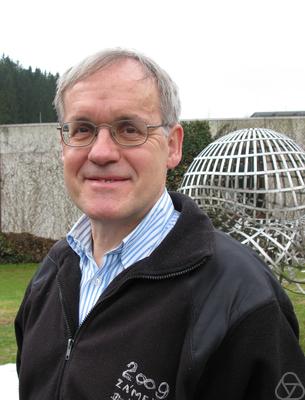
Alexander (Lex) Schrijver is a Dutch mathematician and computer scientist, a professor of discrete mathematics and optimization at the University of Amsterdam and a fellow at the Centrum Wiskunde & Informatica in Amsterdam. Since 1993 he has been co-editor in chief of the journal Combinatorica.
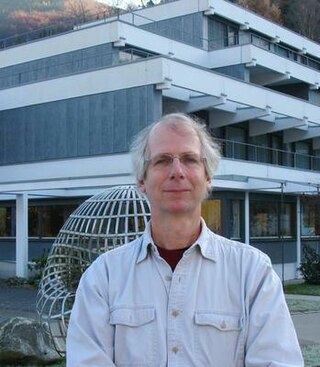
William John Cook is an American operations researcher and mathematician, and Professor of Combinatorics and Optimization at the University of Waterloo.
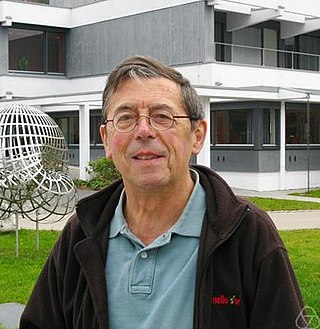
Laurence Alexander Wolsey is a Belgian-English mathematician working in the field of integer programming. His mother Anna Wolsey-Mautner was the daughter of the Viennese Industrialist Konrad David Mautner. He is a former president and research director of the Center for Operations Research and Econometrics (CORE) at Université catholique de Louvain in Belgium. He is professor emeritus of applied mathematics at the engineering school of the same university.

Gérard Pierre Cornuéjols is the IBM University Professor of Operations Research in the Carnegie Mellon University Tepper School of Business and professor at Aix-Marseille University. His research interests include facility location, integer programming, balanced matrices, and perfect graphs.
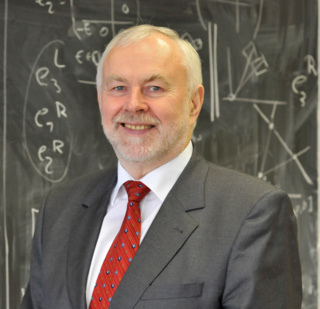
Martin Grötschel is a German mathematician known for his research on combinatorial optimization, polyhedral combinatorics, and operations research. From 1991 to 2012 he was Vice President of the Zuse Institute Berlin (ZIB) and served from 2012 to 2015 as ZIB's President. From 2015 to 2020 he was President of the Berlin-Brandenburg Academy of Sciences and Humanities (BBAW).
The Dantzig Prize is given every three years to one or more individuals for research which, by virtue of its originality, breadth, and depth, has a major impact on the field of mathematical programming. It is named in honor of George B. Dantzig and is awarded jointly by the Society for Industrial and Applied Mathematics (SIAM) and the Mathematical Optimization Society (MOS). The prize fund was established in 1979, and the prize first awarded in 1982.
Manfred Wilhelm Padberg was a German mathematician who worked with linear and combinatorial optimization. He and Ellis L. Johnson won the John von Neumann Theory Prize in 2000.
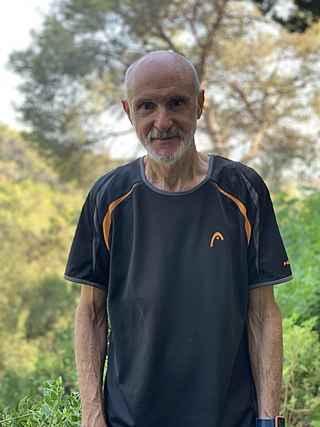
Shmuel Onn is a mathematician, Professor of Operations Research and Dresner Chair at the Technion - Israel Institute of Technology. He is known for his contributions to integer programming and nonlinear combinatorial optimization.
References
- 1 2 "Ellis Johnson: Deep Roots at Georgia Tech". H. Milton Stewart School of Industrial and Systems Engineering. 2010-09-07. Archived from the original on 2010-09-29. Retrieved 2011-07-09.
- ↑ Flagle, Charles D. (2002). "Some Origins of Operations Research in the Health Services". Operations Research. 50: 52–60. doi:10.1287/opre.50.1.52.17805.
- 1 2 "H.Milton Stewart School of ISyE Faculty". Archived from the original on 2009-10-14. Retrieved 2009-11-20.
- ↑ "ISyE Faculty Named Inaugural SIAM Fellows". Archived from the original on 2012-02-20.